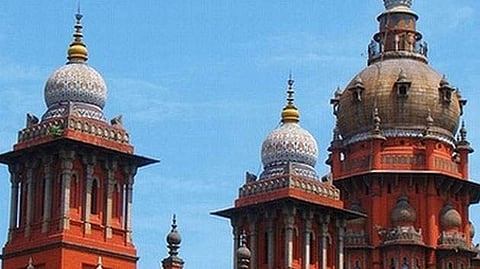

CHENNAI: Noting that the case of a 37-year-old woman, born in India to Sri Lankan refugee parents and married to an Indian citizen, presents a “unique circumstance” and holding that she cannot be considered an illegal immigrant, the Madras High Court has ordered the union government to consider her application for Indian citizenship “on its own merits in accordance with the law”, without deporting her from India.
The court also directed the Ministry of Home Affairs (MHA) to treat her application as a special case to exempt her from applying through online portal, as the portal does not accept applications filed by persons with Sri Lankan background.
The Indian citizenship and passport granted to the woman (S Ramya), an employee of a private firm in Coimbatore, were revoked earlier by authorities, who insisted that she should go back to Sri Lanka and re-enter India legally with a valid visa before submitting an application.
The revocation came after authorities found her case to be in contravention of the provisions of the Citizenship Act.
The authorities found that she was born on December 24, 1987, while the Citizenship Act, as per a 1986 amendment, states that any person born in the country after July 1, 1987, cannot claim citizenship solely by birth if both the parents are not Indian nationals.
The order was passed by Justice D Bharatha Chakravarthy recently while disposing of a petition filed by Ramya, who got married to D Purushothaman, an Indian citizen, in 2014. The couple has a nine-year-old child, studying in a private school in Coimbatore.
Petitioner not an illegal immigrant as she was born in India: Madras HC
Ramya approached the court after Union government authorities concerned had initiated action to revoke her citizenship. According to the petitioner, her grandfather hailed from Pudukkottai district in Tamil Nadu and later moved to Sri Lanka. After the ethnic violence in the island nation intensified in 1983, Ramya’s parents Saravanamuthu and Tamilselvi returned to India by air and stayed in Coimbatore, where she was born on December 24, 1987.
As she was born in India, she was given a birth certificate by the Coimbatore Municipal Corporation and was treated as an Indian citizen. Ramya studied at a local school and later completed her graduation from a college in the district. She was issued a passport and other identity documents, including voter ID, by the respective authorities. When her parents applied for extension of their registration to continue their stay in India, the officials, during scrutiny, found that Ramya was born after July 1, 1987, and took action to revoke her citizenship.
“The authorities noticed that according to the Citizenship Act, any person born in India after July 1, 1987, cannot claim Indian citizenship solely by virtue of birth; at least one of the parents must be a citizen of India at the time of birth. Therefore, suddenly, realising the mistake, the authorities have begun taking action,” the judge noted in the order.
When she was ordered to surrender her passport, Ramya approached the authorities in the MHA and the Ministry of External Affairs with an application on February 10, 2025, for citizenship, as the online portal was not accepting her application due to the peculiar facts involved in her case.
Ramya said that she should be given the citizenship under Section 5 (1) (c) of the Citizenship Act, as she was married to an Indian citizen and has lived for seven years after marriage in the country. But it was rejected by the authorities, who said they would consider her application on these grounds only if she went to Sri Lanka and came back as a legal entrant with a valid Indian visa.
The judge held that she cannot be considered an illegal immigrant because she was born in India. Therefore, given the unique facts and circumstances of the case, the sole requirement of her return to Sri Lanka and reentry into India as a legal migrant need not be considered, but other parameters can be taken into account.